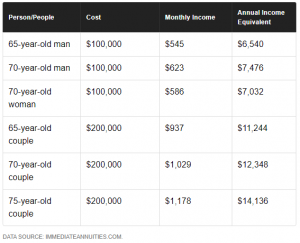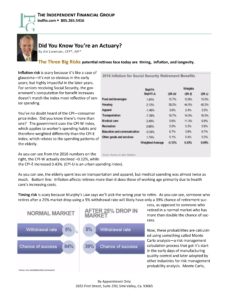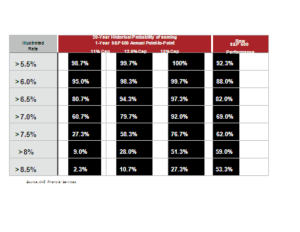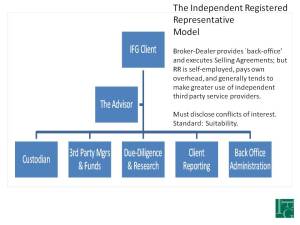
Older Variable Annuities Can Be Expensive!
Older annuities have grown – and so have their expenses. They may be worth a review.

Older annuities have grown – and so have their expenses. They may be worth a review.

Social Security decision-making isn’t as easy as it was for our parents and grandparents. When they became eligible, they simply went downtown (remember those places?) and simply filed.
Not so easy today. Social Security decision-making has become more complex and, unfortunately, because of that, there are few ‘simple’ answers.

It’s been said that the only constant is change and lately it’s been the banking crisis. Financial planning is often more about what we don’t know than what we do know. Lately, we’ve been through COVID, supply chain issues and (ongoing) issues with some of our country’s financial institutions.

When it comes to building a solid financial future, finding the right investment vehicle can be a daunting task. Comparisons are often made between an IUL (Indexed Universal Life Insurance) and a Roth IRA (Individual Retirement Account) as a choice between getting life insurance or investing in the stock market. While an IUL can give the appearance of doing both; however that’s not really the case – and, often, this can lead to unrealistic expectations.

Given the size of our growing national debt it’s no wonder so many people believe taxes will be higher in the future. We have an ageing population and there are a number of factors at work: There’s the annual deficit plus money needed to fund Medicare and Social Security, just to mention a few.

Making your retirement nest-egg last through retirement isn’t easy. Company pension plans have all but disappeared, which means it’s now up to you to be your own actuary. Unfortunately, it’s not something many are equipped to do.

Tax planning through retirement is important; and failing to do it through all four stages of retirement can prove costly because some of the tax traps are permanent. Here’s an example:

Social Security claiming decisions aren’t as simple as they may appear. The decisions you make for yourself can impact your spouse, your future taxes, and even the bite Medicare premiums take from your Social Security benefits.

The SECURE Act includes roughly 100 new rules for retirement affecting both individuals and businesses – all with tax implications and various effective dates. These are the most expansive changes to retirement rules in 40 years.

Many people believe they should take Social Security early in order to keep from drawing down IRA assets, believing that the longer they can grow the IRA tax-deferred, the better off they’ll be.
Are they wrong? Maybe. Maybe not. Different people are in different circumstances.
While the Fed continues to target a 2.0% inflation rate, headwinds in the form of inflation pressures from worker shortages, tariffs, and foreign conflicts are coming at a time as America approaches a historic demographic milestone – a record number of individuals turning 65 this year.
Back in the 1990s, taxes and fiduciary standards weren’t talked about. The financial headlines were dominated by star fund managers and double-digit growth stories. Financial talk shows and glossy magazines alike obsessed over who was “beating the market.” The mantra was simple: accumulate assets. That was the measure of success.